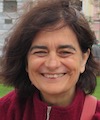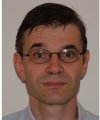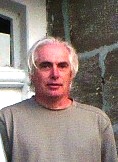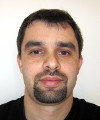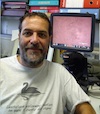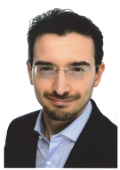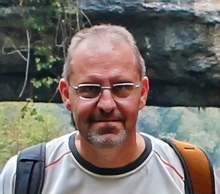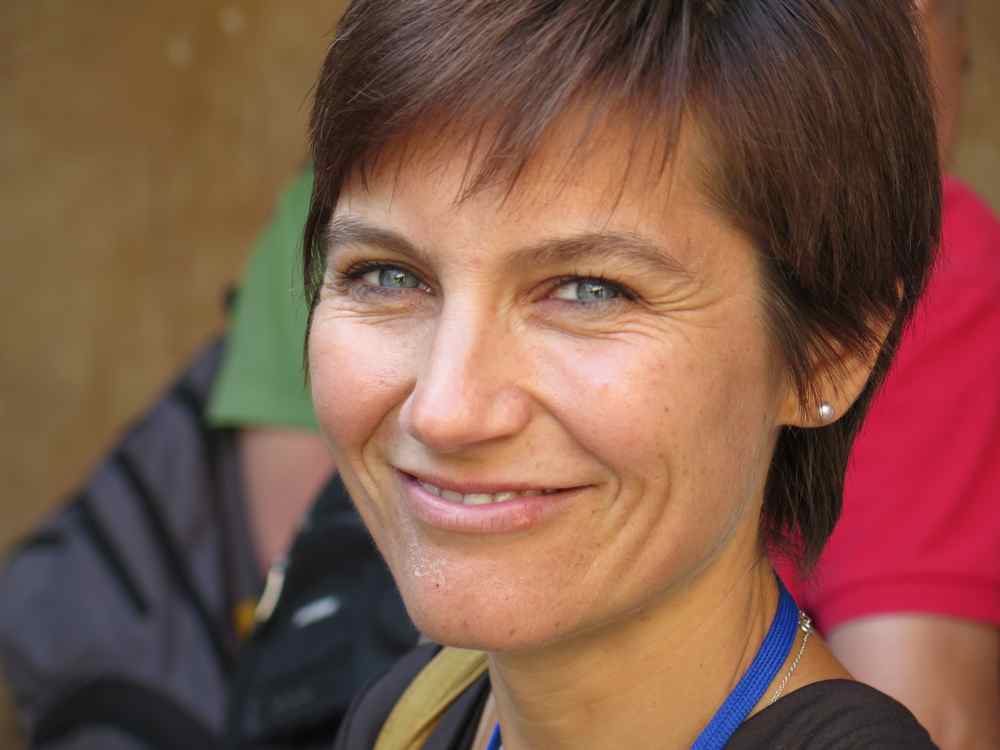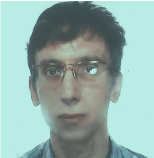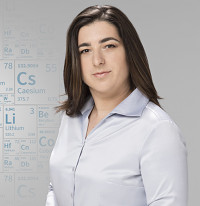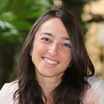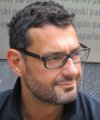Studying at the University of Verona
Here you can find information on the organisational aspects of the Programme, lecture timetables, learning activities and useful contact details for your time at the University, from enrolment to graduation.
Academic calendar
The academic calendar shows the deadlines and scheduled events that are relevant to students, teaching and technical-administrative staff of the University. Public holidays and University closures are also indicated. The academic year normally begins on 1 October each year and ends on 30 September of the following year.
Course calendar
The Academic Calendar sets out the degree programme lecture and exam timetables, as well as the relevant university closure dates..
| Period | From | To |
|---|---|---|
| Semester 1 | Oct 3, 2022 | Jan 27, 2023 |
| Semester 2 | Mar 6, 2023 | Jun 16, 2023 |
| Session | From | To |
|---|---|---|
| Sessione invernale d'esame | Jan 30, 2023 | Mar 3, 2023 |
| Sessione estiva d'esame | Jun 19, 2023 | Jul 31, 2023 |
| Sessione autunnale d'esame | Sep 4, 2023 | Sep 29, 2023 |
| Session | From | To |
|---|---|---|
| Sessione estiva di laurea | Jul 20, 2023 | Jul 20, 2023 |
| Sessione autunnale di laurea | Oct 12, 2023 | Oct 12, 2023 |
| Sessione autunnale di laurea - dicembre | Dec 6, 2023 | Dec 6, 2023 |
| Sessione invernale di laurea | Mar 14, 2024 | Mar 14, 2024 |
| Period | From | To |
|---|---|---|
| Ponte Festa di tutti i Santi | Oct 31, 2022 | Nov 1, 2022 |
| Ponte dell'Immacolata Concezione | Dec 8, 2022 | Dec 9, 2022 |
| Vacanze natalizie | Dec 23, 2022 | Jan 8, 2023 |
| Vacanze di Pasqua | Apr 7, 2023 | Apr 10, 2023 |
| Festa della Liberazione | Apr 24, 2023 | Apr 25, 2023 |
| Festa del lavoro | May 1, 2023 | May 1, 2023 |
| Festa del Santo Patrono | May 21, 2023 | May 21, 2023 |
| Festa della Repubblica | Jun 2, 2023 | Jun 2, 2023 |
| Chiusura estiva | Aug 14, 2023 | Aug 19, 2023 |
Exam calendar
Exam dates and rounds are managed by the relevant Science and Engineering Teaching and Student Services Unit.
To view all the exam sessions available, please use the Exam dashboard on ESSE3.
If you forgot your login details or have problems logging in, please contact the relevant IT HelpDesk, or check the login details recovery web page.
Should you have any doubts or questions, please check the Enrollment FAQs
Academic staff
 rosanna.laking@univr.it
rosanna.laking@univr.it

Mazzuoccolo Giuseppe
 giuseppe.mazzuoccolo@univr.it
giuseppe.mazzuoccolo@univr.it
 +39 0458027838
+39 0458027838
 chiara.nardon@univr.it
chiara.nardon@univr.it
 daniela.pianezzi@univr.it
daniela.pianezzi@univr.it
 claudio.tomazzoli@univr.it
claudio.tomazzoli@univr.it
 franco.zivcovich@univr.it
franco.zivcovich@univr.it
 simone.zuccher@univr.it
simone.zuccher@univr.it
Study Plan
The Study Plan includes all modules, teaching and learning activities that each student will need to undertake during their time at the University.
Please select your Study Plan based on your enrollment year.
1° Year
| Modules | Credits | TAF | SSD |
|---|
2° Year activated in the A.Y. 2023/2024
| Modules | Credits | TAF | SSD |
|---|
3° Year It will be activated in the A.Y. 2024/2025
| Modules | Credits | TAF | SSD |
|---|
| Modules | Credits | TAF | SSD |
|---|
| Modules | Credits | TAF | SSD |
|---|
| Modules | Credits | TAF | SSD |
|---|
| Modules | Credits | TAF | SSD |
|---|
Legend | Type of training activity (TTA)
TAF (Type of Educational Activity) All courses and activities are classified into different types of educational activities, indicated by a letter.
Type D and Type F activities
Le attività formative di tipologia D sono a scelta dello studente, quelle di tipologia F sono ulteriori conoscenze utili all’inserimento nel mondo del lavoro (tirocini, competenze trasversali, project works, ecc.). In base al Regolamento Didattico del Corso, alcune attività possono essere scelte e inserite autonomamente a libretto, altre devono essere approvate da apposita commissione per verificarne la coerenza con il piano di studio. Le attività formative di tipologia D o F possono essere ricoperte dalle seguenti attività.
1. Insegnamenti impartiti presso l'Università di Verona
Comprendono gli insegnamenti sotto riportati e/o nel Catalogo degli insegnamenti (che può essere filtrato anche per lingua di erogazione tramite la Ricerca avanzata).
Modalità di inserimento a libretto: se l'insegnamento è compreso tra quelli sottoelencati, lo studente può inserirlo autonomamente durante il periodo in cui il piano di studi è aperto; in caso contrario, lo studente deve fare richiesta alla Segreteria, inviando a carriere.scienze@ateneo.univr.it il modulo nel periodo indicato.
2. Attestato o equipollenza linguistica CLA
Oltre a quelle richieste dal piano di studi, per gli immatricolati dall'A.A. 2021/2022 vengono riconosciute:
- Lingua inglese: vengono riconosciuti 3 CFU per ogni livello di competenza superiore a quello richiesto dal corso di studio (se non già riconosciuto nel ciclo di studi precedente).
- Altre lingue e italiano per stranieri: vengono riconosciuti 3 CFU per ogni livello di competenza a partire da A2 (se non già riconosciuto nel ciclo di studi precedente).
Tali cfu saranno riconosciuti, fino ad un massimo di 6 cfu complessivi, di tipologia F se il piano didattico lo consente, oppure di tipologia D. Ulteriori crediti a scelta per conoscenze linguistiche potranno essere riconosciuti solo se coerenti con il progetto formativo dello studente e se adeguatamente motivati.
Gli immatricolati fino all'A.A. 2020/2021 devono consultare le informazioni che si trovano qui.
Modalità di inserimento a libretto: richiedere l’attestato o l'equipollenza al CLA e inviarlo alla Segreteria Studenti - Carriere per l’inserimento dell’esame in carriera, tramite mail: carriere.scienze@ateneo.univr.it
3. Competenze trasversali
Scopri i percorsi formativi promossi dal TALC - Teaching and learning center dell'Ateneo, destinati agli studenti regolarmente iscritti all'anno accademico di erogazione del corso https://talc.univr.it/it/competenze-trasversali
Modalità di inserimento a libretto: non è previsto l'inserimento dell'insegnamento nel piano di studi. Solo in seguito all'ottenimento dell'Open Badge verranno automaticamente convalidati i CFU a libretto. La registrazione dei CFU in carriera non è istantanea, ma ci saranno da attendere dei tempi tecnici.
4. CONTAMINATION LAB
Il Contamination Lab Verona (CLab Verona) è un percorso esperienziale con moduli dedicati all'innovazione e alla cultura d'impresa che offre la possibilità di lavorare in team con studenti e studentesse di tutti i corsi di studio per risolvere sfide lanciate da aziende ed enti. Il percorso permette di ricevere 6 CFU in ambito D o F. Scopri le sfide: https://www.univr.it/clabverona
ATTENZIONE: Per essere ammessi a sostenere una qualsiasi attività didattica, incluse quelle a scelta, è necessario essere iscritti all'anno di corso in cui essa viene offerta. Si raccomanda, pertanto, ai laureandi delle sessioni di dicembre e aprile di NON svolgere attività extracurriculari del nuovo anno accademico, cui loro non risultano iscritti, essendo tali sessioni di laurea con validità riferita all'anno accademico precedente. Quindi, per attività svolte in un anno accademico cui non si è iscritti, non si potrà dar luogo a riconoscimento di CFU.
5. Periodo di stage/tirocinio
Oltre ai CFU previsti dal piano di studi (verificare attentamente quanto indicato sul Regolamento Didattico): qui informazioni su come attivare lo stage.
Insegnamenti e altre attività che si possono inserire autonomamente a libretto
| years | Modules | TAF | Teacher |
|---|---|---|---|
| 1° 2° 3° | Algorithms | D |
Roberto Segala
(Coordinator)
|
| 1° 2° 3° | Basis of general chemistry | D |
Chiara Nardon
|
| 1° 2° 3° | Genetics | D |
Massimo Delledonne
(Coordinator)
|
| 1° 2° 3° | Introduction to Docker | D |
Franco Fummi
(Coordinator)
|
| 1° 2° 3° | Mobile app design by using React Native | D |
Graziano Pravadelli
(Coordinator)
|
| years | Modules | TAF | Teacher |
|---|---|---|---|
| 1° 2° 3° | Algebraic Geometry | D |
Rosanna Davison Laking
|
| 1° 2° 3° | Algorithms | D |
Roberto Segala
(Coordinator)
|
| 1° 2° 3° | LaTeX Language | D |
Enrico Gregorio
(Coordinator)
|
| 1° 2° 3° | Python programming language | D |
Carlo Combi
(Coordinator)
|
| 1° 2° 3° | Organization Studies | D |
Serena Cubico
(Coordinator)
|
| 1° 2° 3° | History and Didactics of Geology | D |
Guido Gonzato
(Coordinator)
|
| years | Modules | TAF | Teacher | |
|---|---|---|---|---|
| 1° | Subject requirements: mathematics | D |
Franco Zivcovich
|
|
| 1° 2° 3° | ECMI modelling week | F | Not yet assigned | |
| 1° 2° 3° | ESA Summer of code in space (SOCIS) | F | Not yet assigned | |
| 1° 2° 3° | Federated learning from zero to hero | D |
Gloria Menegaz
|
|
| 1° 2° 3° | Google summer of code (GSOC) | F | Not yet assigned | |
Computer Programming with Laboratory (2022/2023)
Teaching code
4S02751
Academic staff
Coordinator
Credits
12
Language
Italian
Scientific Disciplinary Sector (SSD)
INF/01 - INFORMATICS
Period
Semester 1, Semester 2
Learning objectives
This course proposes providing the fundamentals skills in order to analyze and resolve problems by means of developing programs. The general objectives of this module are - the knowledge of the principles of programming and of programming languages, - the mastery of fundamental techniques for analyzing problems and developing their algorithmic solutions, - the introduction to the methods for the evaluation of correctness and efficiency of algorithms. In the laboratory, we will practice the above principles by means of a programming activity.
Prerequisites and basic notions
Knowledge and mathematical and scientific skills provided by the upper secondary school.
In particular:
- Sets, functions, relations and graphs.
- Numerical sets and their fundamental properties.
- Plane geometry and Cartesian representation of geometric elements.
- Representation of data, relations and functions.
Program
INTRODUCTION
- Problems and Solutions.
- Models of Computations: abstract machine, compiler and interpreter.
- Programming languages: formal languages, compiler, interpreter.
- Laboratory: introduction to linux and to the developing environment.
PART I - Problems, algorithms and programs.
- Imperative programming
- Elementary of programming: basic instructions and development of simple programs; variables, expressions and assignment.
- Data types. The general concept of data type: characterisation and data representation. Abstract Data Types.
- Primitive data types: characterisation, use and related problems.
- Structured data types: array, record, file, pointer, string and other data structures.
- Program structure. Fundamental instructions. Sub-programs: structure, parameters and visibility. Recursion.
- Object Oriented Programming.
- Basics of objects: classes, objects, attributes, constructors, modifiers.
- Advanced data structures: representation of sequences, vector and matrices; inductive and dynamic data structures; introduction to lists, trees and graphs.
PART II - Analysis of Algorithms
- Correctness: termination, logic properties; methods for the correctness verification.
- Efficiency of algorithms.
- Introduction to the complexity. Performance of algorithms. Evaluation of efficiency. Computational costs.
- Asymptotic estimation of the complexity in time and space. The worst and medium case.
- Amortised analysis.
- Study of fundamental examples.
- Sequences: static and dynamic implementation and algorithms.
- Research and Sorting Algorithms: basic search, binary search, insertion and selection sort, merge sort, quick sort.
- Matrices and Vectors: implementation, operations and algorithms.
- Dynamic sequences: abstract definition and implementation; basic operations.
- Trees. Abstract definition and implementation. Basic operation. Binary research trees.
- Introduction to algorithms on graphs.
PRACTICAL PART.
During the practical activities that take place in the Laboratory, all the techniques necessary to apply the topics developed in theory lessons are introduced through the use of programming languages. The principles of imperative programming with the Python language are introduced and the fundamental aspects of object programming with the Java language are explored.
The primary objective of the Laboratory activity is the construction of the solution of a problem through the use of a specific programming language. We address the steps that starting from the informal description of the problem lead to its resolution through the characterisation of the problem, the design of the solution and its coding.
Particular attention is paid to the use of methods and techniques that improve the legibility, maintainability and reuse of the code.
Bibliography
Didactic methods
The teaching consists of lessons and exercises in the classroom and in the laboratory with the possible use of a computer.
Some learning activities have to be carried out as homeworks.
Additional resources will be available in the reserved area of the course.
Learning assessment procedures
The final exam consists of an oral exam: in order to be admitted to the final exam, the student must pass a preliminary written test.
The written test can be partially replaced by ongoing tests and activities.
The assessment methods could change according to the evolution of the general health situation and the academic rules.
Evaluation criteria
The exams are aimed at verifying:
- the general knowledge of the fundamental constructs of imperative and object-oriented programming;
- the ability to use a programming language effectively and correctly;
- the ability to manage the problem solving process: description and rigorous characterization of problems, design of the data representation, design and development of the solution code, analysis of the efficiency and correctness of the solution.
Criteria for the composition of the final grade
The final grade is obtained as the average of the assessments of the three scheduled tests: written, practical and oral.
NOTE: to pass the final exam it is necessary to obtain a positive evaluation - at least 60% of the score - in each of the three tests indicated.
Exam language
Italiano
Career prospects
Module/Programme news
News for students
There you will find information, resources and services useful during your time at the University (Student’s exam record, your study plan on ESSE3, Distance Learning courses, university email account, office forms, administrative procedures, etc.). You can log into MyUnivr with your GIA login details: only in this way will you be able to receive notification of all the notices from your teachers and your secretariat via email and soon also via the Univr app.
Graduation
Documents
| Title | Info File |
|---|---|
|
|
pdf, it, 31 KB, 29/07/21 |
|
|
pdf, it, 31 KB, 29/07/21 |
|
|
pdf, it, 171 KB, 20/03/24 |
List of theses and work experience proposals
| theses proposals | Research area |
|---|---|
| Formule di rappresentazione per gradienti generalizzati | Mathematics - Analysis |
| Formule di rappresentazione per gradienti generalizzati | Mathematics - Mathematics |
| Proposte Tesi A. Gnoatto | Various topics |
| Mathematics Bachelor and Master thesis titles | Various topics |
| THESIS_1: Sensors and Actuators for Applications in Micro-Robotics and Robotic Surgery | Various topics |
| THESIS_2: Force Feedback and Haptics in the Da Vinci Robot: study, analysis, and future perspectives | Various topics |
| THESIS_3: Cable-Driven Systems in the Da Vinci Robotic Tools: study, analysis and optimization | Various topics |
| Stage | Research area |
|---|---|
| Internship proposals for students in mathematics | Various topics |
Attendance
As stated in the Teaching Regulations for the A.Y. 2022/2023, except for specific practical or lab activities, attendance is not mandatory. Regarding these activities, please see the web page of each module for information on the number of hours that must be attended on-site.
Career management
Student login and resources
Erasmus+ and other experiences abroad
Commissione tutor
La commissione ha il compito di guidare le studentesse e gli studenti durante l'intero percorso di studi, di orientarli nella scelta dei percorsi formativi, di renderli attivamente partecipi del processo formativo e di contribuire al superamento di eventuali difficoltà individuali.
E' composta dai proff. Sisto Baldo, Marco Caliari, Francesca Mantese, Giandomenico Orlandi e Nicola Sansonetto

